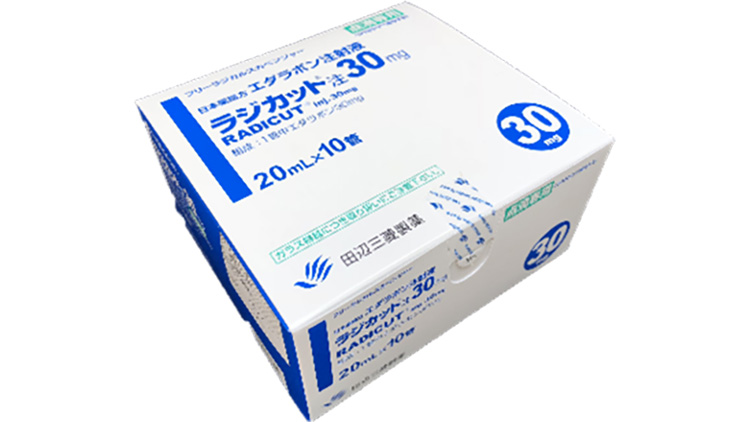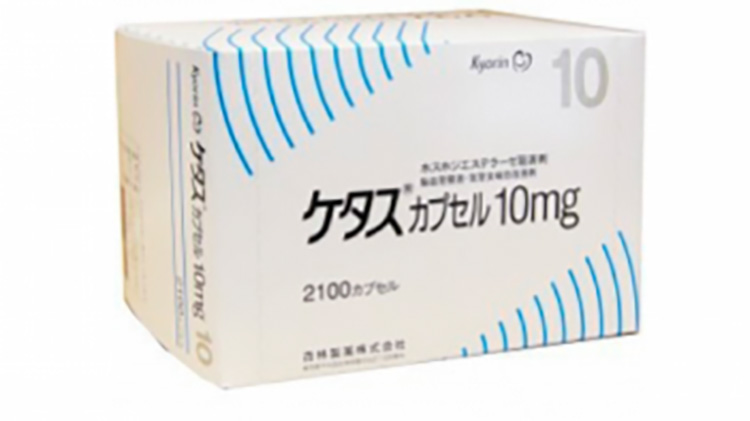Radicut (edaravone) vs Ketas (ibudilast)
Radicut (edaravone) vs Ketas (ibudilast)
Radicut (edaravone) is an antioxidant neuroprotective agent primarily approved for the treatment of amyotrophic lateral sclerosis (ALS), and it works by scavenging free radicals to potentially slow the decline of neurological function. Ketas (ibudilast) is a phosphodiesterase inhibitor with anti-inflammatory properties, used off-label for various neurological conditions and is being investigated for its potential in treating progressive forms of multiple sclerosis (MS) and other neuroinflammatory disorders. When deciding between Radicut and Ketas, it is essential to consult with a healthcare provider to consider the specific diagnosis, the mechanism of action of each medication, potential benefits, side effects, and the current evidence supporting their use for the condition in question.
Difference between Radicut and Ketas
| Metric | Radicut (edaravone) | Ketas (ibudilast) |
|---|---|---|
| Generic name | Edaravone | Ibudilast |
| Indications | Amyotrophic lateral sclerosis (ALS) | Asthma, cerebrovascular disorders, and for off-label use in multiple sclerosis and neuropathic pain |
| Mechanism of action | Free radical scavenger that protects against oxidative stress and neuronal apoptosis | Phosphodiesterase inhibitor, which also suppresses production of pro-inflammatory cytokines and promotes neurotrophic factors |
| Brand names | Radicut, Radicava | Ketas, Eyevinal |
| Administrative route | Intravenous infusion | Oral |
| Side effects | Headache, gait disturbance, bruising, skin inflammation, dysphagia, and others | Nausea, diarrhea, abdominal pain, rash, and others |
| Contraindications | Hypersensitivity to edaravone or any of the excipients | Hypersensitivity to ibudilast or any of the excipients |
| Drug class | Free radical scavenging agent | Phosphodiesterase inhibitor |
| Manufacturer | Mitsubishi Tanabe Pharma | Kyorin Pharmaceutical Co., Ltd. |
Efficacy
Efficacy of Radicut (Edaravone) in ALS
Radicut, also known by its generic name edaravone, is a medication that has been approved for the treatment of Amyotrophic Lateral Sclerosis (ALS). ALS is a progressive neurodegenerative disease that affects nerve cells in the brain and spinal cord, leading to loss of muscle control. Edaravone works as a free radical scavenger, potentially reducing oxidative stress which is believed to be a contributing factor in the neuronal cell damage associated with ALS. Clinical trials have demonstrated that edaravone can slow the decline in physical function in patients with ALS, particularly in the early stages of the disease and in those with less severe impairment at the time of treatment initiation.
The efficacy of edaravone for ALS was notably supported by a six-month, placebo-controlled clinical trial conducted in Japan. The study showed that patients receiving edaravone experienced a smaller decline in the ALS Functional Rating Scale-Revised (ALSFRS-R), which measures physical function in performing daily activities, compared to those receiving a placebo. However, it is important to note that the long-term effects of edaravone on survival and disease progression beyond the duration of the clinical trials have not been fully established.
Efficacy of Ketas (Ibudilast) in ALS
Ketas, with the active ingredient ibudilast, is a drug that has been primarily used in the treatment of asthma and post-stroke complications in some Asian countries. In the context of ALS, ibudilast is considered for off-label use and has been investigated for its potential neuroprotective effects. Ibudilast is a phosphodiesterase inhibitor and has properties that may reduce inflammation and glial cell activation, both of which are thought to play roles in the pathogenesis of ALS.
Research into the efficacy of ibudilast for ALS is still emerging, with several clinical trials underway to evaluate its impact on disease progression. Preliminary studies have suggested that ibudilast may have a modest effect on preserving motor function and extending survival in ALS patients. However, larger, more comprehensive clinical trials are necessary to confirm these findings and to fully understand the potential benefits and risks of ibudilast in the treatment of ALS. Until such data is available, the use of ibudilast for ALS remains experimental and should be considered within the context of clinical trials or carefully evaluated off-label use.
Regulatory Agency Approvals
Radicut
-
Food and Drug Administration (FDA), USA

-
Health Canada

-
Pharmaceuticals and Medical Devices Agency (PMDA), Japan

Ketas
-
Pharmaceuticals and Medical Devices Agency (PMDA), Japan

Access Radicut or Ketas today
If Radicut or Ketas are not approved or available in your country (e.g. due to supply issues), you can access them via Everyone.org.
How it works

Make an enquiry
Choose the medicine you want to buy, answer a couple of questions, and upload your prescription to speed things up. We’ll get back to you within 24 hours.


Make an enquiry
Choose the medicine you want to buy, answer a couple of questions, and upload your prescription to speed things up. We’ll get back to you within 24 hours.


Breeze through the paperwork
We'll guide you through the required documents for importing unapproved medicine, ensuring you have all the necessary information.


Get a personalized quote
We’ll prepare a quote for you, including medicine costs and any shipping, administrative, or import fees that may apply.


Receive your medicine
Accept the quote and we’ll handle the rest - sourcing and safely delivering your medicine.

Some text on this page has been automatically generated. Speak to your physician before you start a new treatment or medication.
Let's talk
If you have any questions, call us or send us a message through WhatsApp or email:
Contact us




